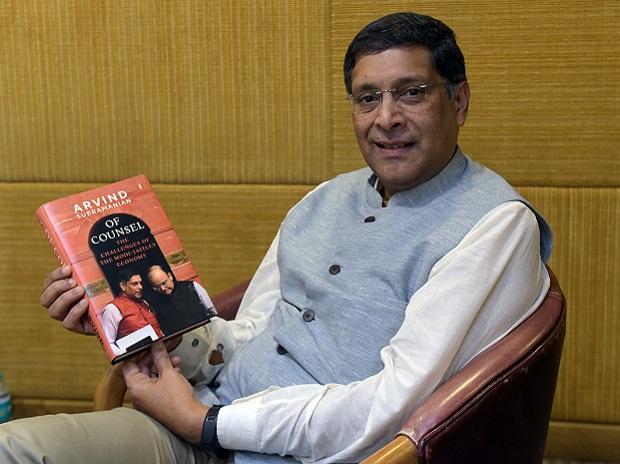Former chief economic advisor Arvind Subramanian said on Sunday the new gross domestic product back-series data, released late last month by the Central Statistics Office and NITI Aayog, raised a lot of questions and hurt the credibility of official data.
“As an economist I have to say it (the new series) has created a lot of questions. If you look at the other indicators during that period, you see a difference between what those indicators show and what the recent back-series shows. It demands an explanation,” Subramanian said.
Currently a visiting lecturer at Harvard University, Subramanian is in New Delhi for the launch of his new book.
“This is a very technical subject, and we should have more technical experts examining it. It becomes a matter not just of the credibility of this data but the data-generating capacity of the state. We have to convince ourselves and the world that we are a nation whose numbers are credible, and therefore we need to get as many experts as we can, and then have an expert technical view,” Subramanian said.
After the junking of the GDP numbers released by a panel of the National Statistical Commission, the Centre last month came out with official back-series data that shows economic growth was higher under Prime Minister Narendra Modi’s government than under the previous Congress-led United Progressive Alliance (UPA) regime.
According to this set of data, India’s GDP grew at an average of 6.7 per cent in nine years of the UPA regime, 2005-06 to 2013-14, in comparison to growth under the current National Democratic Alliance government, which stands at 7.3 per cent. GDP growth for all years prior to 2010-11 has been revised downwards.
Subramanian said India needed to brace for an economic slowdown because of a combination of local factors — like the electoral cycle preventing major reforms — and a general global downturn.
“We have to brace ourselves for slowdown for some time. I say that for a combination of reasons. First of all, the financial system is under stress, conditions are very tight. The agriculture sector remains under stress. This is not conducive for rapid growth,” Subramanian said.
“Europe is slowing, Japan is slowing ... There are political calendars. It is easier to do things at some moments than at other moments. To expect huge reforms that will perk up the economy at this stage would be somewhat ambitious,” he added.
Discussing the goods and services tax (GST) at length, Subramanian pointed out that judging the yearly success of the GST, based on the targets set in the Budget, was unreasonable. “Frankly, the Budget has made unreasonable demands from the GST. It has asked for 16-17 per cent growth. What you should ask of the GST is, if the economy is growing at 11-2 per cent (nominally), are GST revenues showing 12-13 per cent growth or not?” “This year some of the rates were slashed quite a bit. You have to measure it relative to how the much economy is growing, and how much you tweaked GST items, and is the combination giving you enough growth or not,” he said.
The 2018-19 Budget has set a GST target of Rs7.44 trillion, including the central GST, the Centre’s share of the integrated GST, and the compensation due to the states. This compares to the revised estimate of Rs4.44 trillion for 2017-18.
The GST came into effect on July 1, 2017.
Subramanian said Prime Minister Narendra Modi’s stated commitment of doubling farmers’ incomes could not be achieved by the existing process of fertiliser subsidies and setting minimum support prices. He said such a commitment required a new process of direct benefit transfers, perhaps something like the Rythu Bandhu scheme in Telangana, which provides Rs4,000 per acre per season to farmers.
Subramanian connected one of his pet subjects, universal basic income, with the political realities of the day. He acknowledged that unless the Centre and states agreed to share the financial burden, a proper universal basic income scheme could not be implemented, but said he believed that all parties would promise some form of it in the run-up to the general elections in 2019.
